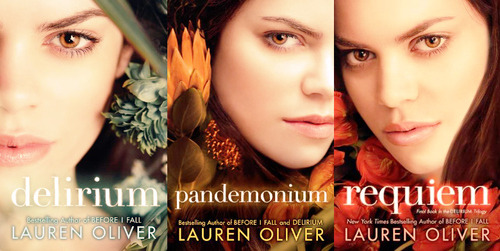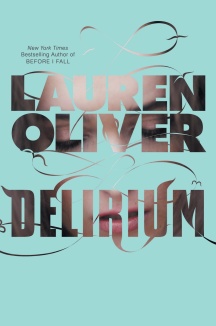Goodreads summary: “For most of her life, Lauren Mahdian has been
certain of two things: that her mother is dead, and that her father is a
murderer.
Before the horrific tragedy, Lauren led a sheltered life in a wealthy corner of America, in a town outside Manhattan on the banks of Long Island Sound, a haven of luxurious homes, manicured lawns, and seemingly perfect families. Here Lauren and her older brother, Alex, thought they were safe.
But one morning, six-year-old Lauren and eight-year-old Alex awoke after a night spent in their tree house to discover their mother’s body and their beloved father arrested for the murder.
Years later, Lauren is surrounded by uncertainty. Her one constant is Alex, always her protector, still trying to understand the unraveling of his idyllic childhood. But Lauren feels even more alone when Alex reveals that he’s been in contact over the years with their imprisoned father—and that he believes he and his sister have yet to learn the full story of their mother’s death.
Then Alex disappears.
As Lauren is forced to peek under the floorboards of her carefully constructed memories, she comes to question the version of her history that she has clung to so fiercely. Lauren’s search for the truth about what happened on that fateful night so many years ago is a riveting tale that will keep readers feverishly turning pages.”
Well, there’s quite a lengthy summary! It just did most of my work for me. This book, though well-written and intriguing, left me a little cold. This is mainly because I had a hard time connecting with Lauren, which is fitting, because she puts up walls against everyone except her brother. I know that she does, as the reader, because I get her internal monologue, and yet, that wasn’t enough for me to feel emotionally on the same page with her.
The story unfolds a bit slowly — almost a bit too slowly, though, as it was frequently on the precipice of losing my interest. The “mystery” aspect (I don’t think it’s a spoiler to say that Lauren’s father did not kill her mother, because Lauren’s “search for the truth” — as mentioned in the book description — basically indicates that he didn’t) is well-done, I think. There aren’t a ton of irritating red herrings, and the person responsible isn’t simply introduced at the very end as a “Who? Oh, okay I guess” scapegoat either. But the book wasn’t completely devoted to the mystery; there was also a lot to do with Lauren’s emotional coldness, such as her endlessly stringing along her would-be fiance, her discomfort with psychiatric therapy, and using her cynical detachment to assess couples coming to her — she’s a realtor — looking for homes. I understand that this was all intended to flesh out Lauren’s character, but ultimately it seemed like this book was having an identity crisis: is it a mystery, or is it a character study? The former, as I mentioned, is well done, but that element of the story altogether comprises fewer than 100 pages. As the latter, it’s also problematic, because everything wraps up too neatly without much of a conflict for Lauren herself. I’m not saying she needed to go on The Hero’s Journey, but her trajectory is basically “I’m numb and I hate my father” ==> “He didn’t do it so we can re-unite and now I’m happy again.” There is a happy ending, but as I said, it just left me cold.
2.5 stars overall.
Before the horrific tragedy, Lauren led a sheltered life in a wealthy corner of America, in a town outside Manhattan on the banks of Long Island Sound, a haven of luxurious homes, manicured lawns, and seemingly perfect families. Here Lauren and her older brother, Alex, thought they were safe.
But one morning, six-year-old Lauren and eight-year-old Alex awoke after a night spent in their tree house to discover their mother’s body and their beloved father arrested for the murder.
Years later, Lauren is surrounded by uncertainty. Her one constant is Alex, always her protector, still trying to understand the unraveling of his idyllic childhood. But Lauren feels even more alone when Alex reveals that he’s been in contact over the years with their imprisoned father—and that he believes he and his sister have yet to learn the full story of their mother’s death.
Then Alex disappears.
As Lauren is forced to peek under the floorboards of her carefully constructed memories, she comes to question the version of her history that she has clung to so fiercely. Lauren’s search for the truth about what happened on that fateful night so many years ago is a riveting tale that will keep readers feverishly turning pages.”
Well, there’s quite a lengthy summary! It just did most of my work for me. This book, though well-written and intriguing, left me a little cold. This is mainly because I had a hard time connecting with Lauren, which is fitting, because she puts up walls against everyone except her brother. I know that she does, as the reader, because I get her internal monologue, and yet, that wasn’t enough for me to feel emotionally on the same page with her.
The story unfolds a bit slowly — almost a bit too slowly, though, as it was frequently on the precipice of losing my interest. The “mystery” aspect (I don’t think it’s a spoiler to say that Lauren’s father did not kill her mother, because Lauren’s “search for the truth” — as mentioned in the book description — basically indicates that he didn’t) is well-done, I think. There aren’t a ton of irritating red herrings, and the person responsible isn’t simply introduced at the very end as a “Who? Oh, okay I guess” scapegoat either. But the book wasn’t completely devoted to the mystery; there was also a lot to do with Lauren’s emotional coldness, such as her endlessly stringing along her would-be fiance, her discomfort with psychiatric therapy, and using her cynical detachment to assess couples coming to her — she’s a realtor — looking for homes. I understand that this was all intended to flesh out Lauren’s character, but ultimately it seemed like this book was having an identity crisis: is it a mystery, or is it a character study? The former, as I mentioned, is well done, but that element of the story altogether comprises fewer than 100 pages. As the latter, it’s also problematic, because everything wraps up too neatly without much of a conflict for Lauren herself. I’m not saying she needed to go on The Hero’s Journey, but her trajectory is basically “I’m numb and I hate my father” ==> “He didn’t do it so we can re-unite and now I’m happy again.” There is a happy ending, but as I said, it just left me cold.
2.5 stars overall.







